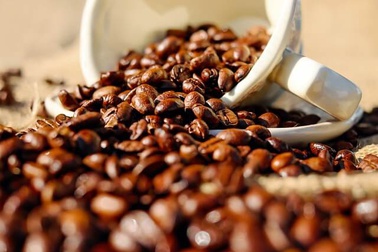Depuis des années, les médecins nous disent de nous méfier des effets indésirables du café. Le café serait nocif à la santé, car il pourrait élever la tension artérielle, provoquer des problèmes cardiaques et un ulcère ou éventuellement induire un diabète. Il semble que les études actuelles contredisent ces affirmations. Selon certains scientifiques, la consommation modérée de café serait même bénéfique pour la santé. Il est bien évident que comme pour toute autre chose, la sagesse impose certaines limites.
Éditée en avril 2012 dans un journal américain de nutrition clinique, une étude récente confirme que le café peut réellement réduire le risque de développer un diabète de type 2. On parle bien évidemment de café « pur », c’est-à-dire sans adjonction de sucre, ni édulcorant, ni lait ou toute autre substance. Pour qu’il soit bénéfique, le café doit absolument être consommé de la « bonne manière ».
Comme toute substance naturelle, le café est constitué d’un mélange de centaines d’éléments différents. Chaque élément isolé pourrait effectivement s’avérer toxique, mais la nature fait bien les choses. Et il s’avère que les proportions du mélange naturel de ces divers composants neutralisent les effets nocifs de la caféine par exemple.
La caféine est la drogue la plus très utilisée au monde et selon le dosage et la manière de l’utiliser, elle peut être utile ou néfaste. Normalement, la caféine bloque l’action de l’adénosine. Normalement, l’adénosine ralentit l’activité cérébrale et induit le sommeil. Ainsi certaines personnes très sensibles à la caféine auront des problèmes d’endormissement si elles boivent du café en soirée.

Il faut savoir que les concentrations naturelles en caféine varient selon l’espèce de grain de café et en fonction de son mode de fabrication. La façon dont le café est grillé, torréfié, broyé ou brassé influe directement sur le taux de caféine qu’il contient. Et contrairement aux croyances populaires, les grains plus foncés contiennent moins de caféine que les grains clairs, car la chaleur prolongée décompose les molécules de caféine. Les espèces de haricot diffèrent également largement dans leurs concentrations naturelles de caféine. Le café dont l’eau s’est écoulée lentement au travers d’un filtre contient réellement plus de caféine qu’un expresso dont l’eau passe très rapidement en travers du filtre. De manière générale, plus la mouture est fine, plus la concentration en caféine est élevée. Si vous pensez être très sensibles au café ou à la caféine, il se peut ce soit le sucre que vous y ajoutez ou les dérivés de pétroles utilisés lors de la torréfaction, plutôt que la caféine elle-même. En effet, le café contient nombre d’autres contaminants qui peuvent déclencher des intolérances et des réactions telles que brûlure d’estomac, palpitations cardiaques ou toute autre chose qui sont habituellement reliées à une sensibilité à la caféine.
De très nombreuses études, parues récemment ou à paraître dans un avenir très proche, confirment l’effet protecteur du café sur le diabète de type 2 ou diabète gras non-insulinodépendant. Le café agirait de manière significative et préventive envers la maladie de Parkinson et la maladie d’Alzheimer. Ce qui intéresse grandement les entreprises pharmaceutiques qui s’empressent de concevoir des drogues imitant les effets du café. En 2011, une étude effectuée sur près de 50.000 hommes a démontré que ceux qui boivent 6 tasses de café par jour ont une réduction de 60 % de risque de développer un cancer de la prostate mortel. Quant à ceux qui en ont bu 3 tasses par jour, ils voient leurs risques diminués de 30 %. Des résultats similaires ont été obtenus en observant des cas de fibroses, de stéatoses, d’hépatites C et de cancer du foie. Les principes actifs du café semblent réduire les risques de cancer du rein, de cancer colorectal, de cancer du côlon chez les femmes, mais également les problèmes d’arythmie cardiaque pour lesquels il y aurait eu nettement moins d’hospitalisation. Les bienfaits du café ont également été observés sur la fonction pulmonaire des non-fumeurs et sur la flore gastro-intestinale. Grâce à lui, l’activité et/ou le nombre de Bifidobacterium dans l’intestin augmentent. Ce qu’il faut retenir de ces dernières observations, c’est principalement que le café injustement accusé stabilise de manière irréfutable le niveau de glucose sanguin.

Voici encore d’autres vertus de cette boisson chaude au goût et à l’arôme puissant.
La recherche prouve également que le café déclenche la libération d’un facteur de croissance cérébral, facteur qui active lui-même le développement de nouveaux neurones. Cela se manifeste par une meilleure activité musculaire puisqu’il y aurait une optimisation defonctionnement des motoneurones. Ces motoneurones sont indispensables puisqu’ils agissent comme de véritables démarreurs de l’activité musculaire. L’avancée en âge occasionne semble-t-il une atrophie et une diminution de ce processus musculaire. L’absorption de caféine naturelle pourrait donc entretenir la jeunesse des tissus cérébraux et musculaires. Boire du café augmenterait notre métabolisme jusqu’à 20 % et serait salutaire s’il est consommé avant un exercice physique. Il permettrait d’enclencher plus rapidement les processus énergétiques nécessaires à la séance d’entraînement.
Le café stimule les glandes surrénales, il serait donc recommandé en cas d’épuisement de ces glandes. Ce type d’épuisement est très fréquent actuellement, en raison des taux de stress excessivement importants. Le café a également un effet diurétique.
Une étude très poussée d’un point de vue moléculaire démontre que le café fortement torréfié reconstitue les taux sanguins de vitamine E et de glutathion qui sont tous deux de très puissants antioxydants. Il entraîne une réduction significative du poids corporel chez les personnes enrobées et même proches de l’obésité, de même qu’il empêche l’estomac de sécréter de l’acide excédentaire grâce à une molécule particulière qu’il contient. Beaucoup d’autres améliorations ont été observées, mais il serait fastidieux de toutes les énumérer.

Les cultures de grains de café sont parmi les cultures les plus fortement pulvérisées avec des pesticides, il est donc absolument indispensable de choisir un café de qualité biologique et/ou organique. Sachez que tous les effets bénéfiques disparaissent si le café a été en contact avec des pesticides ou avec d’autres produits chimiques. Il doit être consommé rapidement après l’ouverture du paquet, sans quoi il perd vite son arôme. Si votre café n’a pas un arome agréable, il est vraisemblablement rance et éventé. Assurez-vous que l’eau que vous employez est pure. Les grains choisis pour sa préparation doivent être les plus foncés possible, puisqu’ils seront moins concentrés en caféine et la méthode « expresso » reste la meilleure en ce qui concerne la teneur optimale des différents composants du café. Rappelons que la caféine de synthèse n’a pas du tout les mêmes vertus et que ce type de caféine augmente réellement les risques de dépasser les doses optimales. Ce sont les cafés torréfiés, français, italiens, turcs ou sous forme d’expresso qui présentent les meilleurs principes neuro-protecteurs, contrairement aux cafés verts (non torréfiés).
Si vous utilisez des filtres en papier pour la préparation de votre café, veillez à ce qu’ils soient non blanchis. Les filtres d’un blanc lumineux sont blanchis grâce à des produits chlorés et contiennent des sous-produits dangereux tels que la dioxine qui ont servi pour leur désinfection. Les produits à base de chlore sont néfastes pour la santé. Faites attention au récipient que vous utilisez. Évitez les tasses en plastique et celles mousse de polystyrène. Les tasses en verre et en céramique restent les meilleurs contenants.
Afin de vous assurer que la torréfaction soit suffisante et exécutée de manière naturelle, vous pouvez griller vos grains de café vous-même. Actuellement, de nombreux magasins proposent des grains de café verts secs et organiques en paquet ou au poids. Vous verrez le coût de votre café réduit au moins de moitié et l’investissement dans une petite machine à torréfier sera vite regagné. Sans compter que vous aurez la garantie de conserver toutes les propriétés nutritionnelles des grains de café que vous torréfierez vous-mêmes.

Afin de conserver son efficacité, le café doit être consommé directement après sa préparation, avec modération et sans ajout de sucre. Le moindre ajout de sucre fait disparaître l’ensemble des avantages énumérés ci-dessus. De plus, cela provoque des pics insuliniques, qui contribuent à l’apparition du processus d’insulino-résistance.
Si vous suivez précisément tous ces conseils et si vous restez raisonnables, il n’y a vraiment aucune raison de vous priver du plaisir de savourer un bon café si vous aimez cela, d’autant plus que vous profiterez de toute sa richesse « thérapeutique » et préventive.
Malgré tout, le café reste déconseillé aux femmes enceintes.



